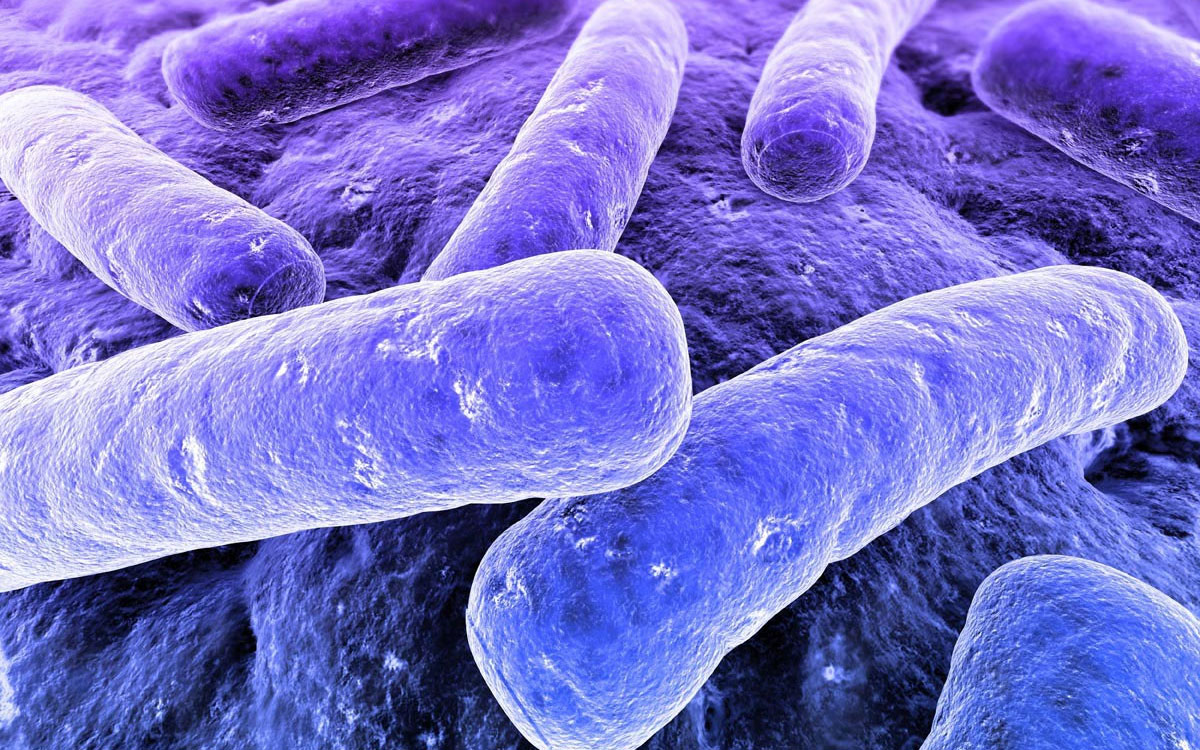our war on microbes may be giving us cancer

Cleanliness is generally a good thing and we’ve developed hundreds of products to ensure our homes are cleaner than they’ve ever been in recorded history. Antibacterial wipes, soaps, and sprays are in virtually every modern housing unit cupboard, and our medicine cabinets used to be filled with antibiotics at the slightest sniffle. But recent studies show that such a dedication to wiping out as many microscopic living things around us as possible is backfiring. Instead of being healthier and safer, we’re actually making ourselves more predisposed to a whole host of chronic and potentially life-threatening problems.
It seems absurd that cleanliness might lead to illnesses, but consider that we live in a symbiotic relationship with an entire ecosystem of microbes that help us calibrate our immune systems and digest our food. They aren’t so much hangers on as an extremely important, but very poorly understood part of who we are, and disrupting their normal cycle means we suffer in subtle but very meaningful ways. All the antimicrobial agents in our homes, schools, offices, and hospitals, and the antibiotics we still wildly abuse are setting us up for cancers, obesity, food allergies, easy colonization by superbugs, and maybe even neurological problems.
so what’s the link between over-cleanliness and cancer?
A recent summation of studies into how leukemia develops in children is a perfect example of this problem. Leukemia is a cancer we’re able to cure some 90% of the time with modern medicine when it’s detected, but until very recently, we had little insight into its origins. Perplexingly, its rates have grown in developing countries at a steady pace, correlating closely with wealth and modernity, and indicating that something in affluent nations played a key role in its development.
As it turns out, that something was chronic inflammation in response to common infections without a primed immune system. You see, a relatively common mutation which occurs during fetal development raises susceptibility to the cancer. Next, without being exposed to enough germs during the first year of life in homes constantly cleaned with antiseptic everything, the child’s immune system isn’t properly developed. When they do get their first infections after living in an antibacterial bubble, inflammation triggered by a release of cell-altering substances called cytokines can cause a second mutation that causes acute lymphoblastic leukemia.
Of course, there are other types of leukemia and not every type is pediatric. Research on what triggers them is still ongoing and there may be even more to the picture. But the fact that even one type involves a lack of childhood immune stress in modern ultra-clean homes as a key factor should already be extremely alarming because evidence clearly shows that we’re making our children sicker with overzealous cleaning. Even if acute lymphoblastic leukemia is the only type of cancer which develops with the aid of antibacterial wipes, we have strong indication of other health issues caused by the same approach to cleanliness.
what are the links between gut flora and other health problems?
Researchers looking at how common antibiotics affect us have been raising red flags about the disruptions of bacteria cultures in our guts making us more prone to gaining weight, diabetes, heart disease, and certain cancers. How? Well, the problem seems to be a lack of diverse gut flora interfering with how food is being digested and creating more body fat, which triggers weight gain alongside a number of related health issues like type 2 diabetes, higher blood pressure, and increased cholesterol. While these effects can be controlled by staying active and eating well, it’s disconcerting that they’re not common knowledge.
More problematic is that disruptions in gut flora trigger inflammation which causes widespread mutations and can lead to a variety of gastrointestinal cancers. Similarly, under-exposure to certain bacteria is thought to be one of the causes of an explosion in food allergies and allergies in general. Just like we see with leukemia, cleaning so thoroughly that we’re effectively carpet bombing every bacterial colony around us means we’re not developing an immune response to the infections that don’t backfire on our own bodies. And treating those infections with large doses of antibiotics also harms the good bacteria we need to stay healthy, as well as possibly damaging our immune system and brain cells while we take them.
why rubbing some dirt on it might be good advice
At this point you might be wondering if we should give up the modern clean lifestyle and the answer is, of course, absolutely not. Cleanliness and good hygiene drastically blunt the spread of many diseases and infections. What we’re seeing are good ideas and practices going well past the point of diminishing returns and in need of being dialed back. Not every soap needs to be antibacterial. Not every kitchen must be sterilized as if it’s an operating room at a hospital. And a few germs here and there won’t kill us. If anything, they’re useful punching bags for your immune system, keeping it fine tuned and preventing dangerous cytokine barrages when it has to fight a serious infection.
What we need is urgent research into the right amount of cleaning and issuing guidelines for the makers of soaps and cleaning agents about just how aggressively their wares should be fighting microbes. At the same time, we should be battling antibiotic overuse and reducing how many antibiotics we prescribe, especially to younger patients who will be most affected by the disruptions in gut flora and immune function. Likewise, unstructured play in the dirt and not sterilizing everything kids touch might seem like quaint traditions of pre-tech generations, but they may be extremely important to preventing allergies, obesity, heart disease, while promoting diverse gut flora and adding healthy years to their lifespans.





